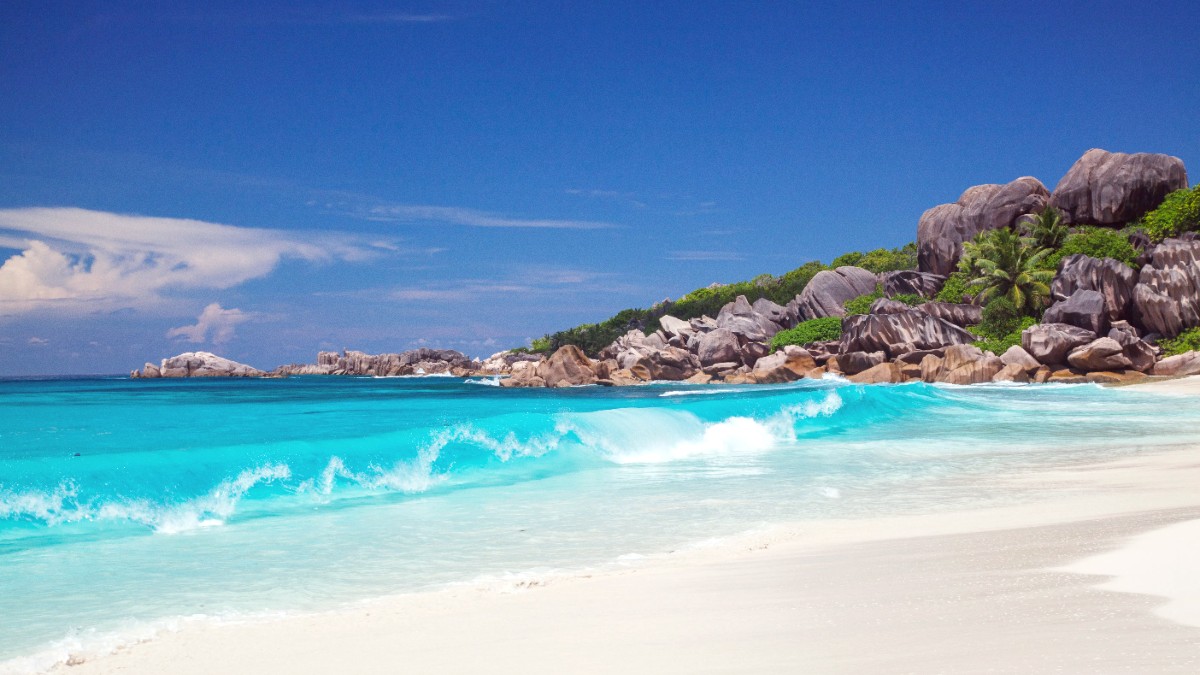
Seychelles
La Digue operates without a public bus system, metro, or trams. This absence defines the island, greatly contributing to its tranquil atmosphere and low environmental impact. The island’s main modes of transport include bicycles, electric buggies (serving as taxis), and walking. This unique transport landscape encourages a slower, more immersive way of experiencing the island.
Without a formal public transit system, the island holds no route maps or designated public transport hubs in the conventional sense. The island's narrow main road forms a loop suitable for cycling, connecting most accessible areas and attractions. The La Passe jetty is the central point for arrival and departure, and consequently, for bicycle rentals and electric buggy hires.
La Digue is very pedestrian-friendly, especially around La Passe and coastal areas. Many attractions are walkable.
Bicycle travel offers the most efficient and enjoyable way to navigate. Group attractions by proximity for time savings.
Bicycle rentals are available from morning to evening. Electric buggies operate on demand. No fixed public transport schedules.
Not available for tourists on La Digue. Island policy prioritizes low-impact transport.
Not common. Island discourages these vehicles for quiet atmosphere.
Dominant form. Available from guesthouses and shops. SCR 100-150/day. No license needed.
Electric buggies are main motorized public transport. Ox-carts for photo ops, not regular transport.
La Digue presents a paradise for walking and cycling enthusiasts, offering an intimate way to discover its beauty.
No tour buses or hop-on-hop-off services operate on La Digue. The island’s small size makes such services unnecessary.
Available from La Passe jetty. Ideal for accessing remote beaches or island hopping to nearby islands. Negotiate fares in advance.
No cable cars or funiculars. The electric buggy is the main unique local motorized transport.
Accessibility infrastructure remains limited on La Digue. Most guesthouses and paths are not designed to be wheelchair-friendly. Electric buggies assist with transfers, but island navigation can be challenging for those with mobility needs.
Standard 1-speed or geared bikes.
Pros: Freedom, eco-friendly, affordable, immersive. Cons: Tiring on hills, sun exposure, limited carrying capacity. Cost: 100-150 SCR/day.
Golf cart-style vehicles used as taxis.
Pros: Convenient for luggage/groups, less physical effort, air-conditioned options. Cons: Higher cost, less flexibility, less immersive. Cost: Negotiated per trip (e.g., 50-150 SCR for short rides).
Exploring on foot.
Pros: Free, immersive, flexible, good for short distances. Cons: Limited range, physically demanding for longer distances or heat. Cost: Free.
La Digue's unique transport culture contributes heavily to its serene atmosphere. Embracing bicycles and walking deepens your connection with the island.
It's not just about getting from A to B; it's about the journey itself, at a wonderfully relaxed pace.